Chicken coop advice..
amunk01
6 years ago
Featured Answer
Sort by:Oldest
Comments (19)
AmyinOwasso/zone 6b
6 years agohazelinok
6 years agoRelated Discussions
Chicken tractor as permanant coop in -40C Winters? Advice?
Comments (2)I wouldn't put chickens in a coop without insulation when the weather could dip to -40. We get that kind of weather as well and I have kept small numbers at times but my insulated coop is about 6x8, enough room for me to move around in too. I do keep a heat light in there during cold times and all night at -40....See Morepredator proof chicken coop...
Comments (16)No, not all chicken owners have lost their entire flock to predators.... We have 2 means of keeping our chickens safe. The first is livestock guardian dogs that keep all our animals safe including chickens and ducks. Of course this means the dogs have to have access to the birds, meaning wing clipping would be appropriate for free rangers. Our chicken coop is predator proof, 'cept maybe a bear if one had the notion. It has a cement floor, 2 windows with both 1x2 welded wire & hardcloth 1/2x1/2 wire. The entrance exterior door (for inclement weather) is solid wood, the interior entrance door (for nice weather) is wood frame, with cross-braces and hardwire 1/2x1/2 wire. This wire has been inplace for at least 15 years probably much more. There is evidence something has tried to get in, but has not succeeded as it is stapled well, and the cross braces on each corner & across the center keep it from being pushed in. Works extremely well. Your A-frame sounds wonderful, given a proper floor, but I think I would opt for a design that would utilize the sidewalls better as the bottom corners would be unuseable on an A-Frame unless it was on a high base. Just a thought. Brendasue...See MoreManaging poop in a small chicken coop?
Comments (5)Honey, if you can potty train chickens, take your show on the road and make a bundle! I personally would hire you to train my flock. I love my girls, but not only do they lack table manners, but their bathroom habits need upgrading, also. A removable plastic tray should work fine (also easier to hose off if necessary). Your hens will be fine, happy, and you'll enjoy them immensely. My husband says watching the girls is better than reality TV....See MoreNew electrical circuit for chicken coop
Comments (11)Good take-away info ... thank you both for replying to my request. I debated using a single GFI outlet, and running all outlets off of that outlet, but feel making the whole circuit GFI safer since it is an outdoor circuit. Should be a low ampergae circuit, running occasional fan in summer, and water heater in winter, lights on as needed...so not much power should be needed. All boxes are outdoors rated...!! THWN stranded will definitely be a better choice than UF...!!! Should I include a shut-off at the coop for this circuit...like a 20AMP switch, or is this overkill considering the entire circuit is GFI protected ? Cheers, Clem...See Moreamunk01
6 years agohazelinok
6 years agoluvncannin
6 years agomil_533
6 years agoAmyinOwasso/zone 6b
6 years agohazelinok
6 years agomil_533
6 years agoAmyinOwasso/zone 6b
6 years agoAmyinOwasso/zone 6b
6 years agohazelinok
6 years agomil_533
6 years agoNancy RW (zone 7)
6 years agoluvncannin
6 years agomil_533
6 years agoluvncannin
6 years agoOkiedawn OK Zone 7
6 years ago
Related Stories
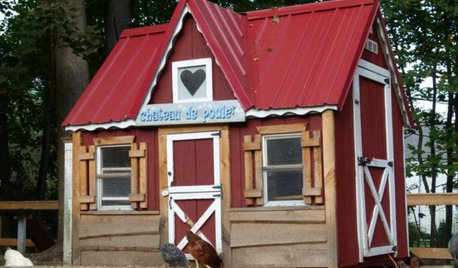
GARDENING AND LANDSCAPINGChicken Coops That Rule the Roost
These 8 chicken coops designed by Houzz users will have you clucking in admiration — and maybe even planning a henhouse of your own
Full Story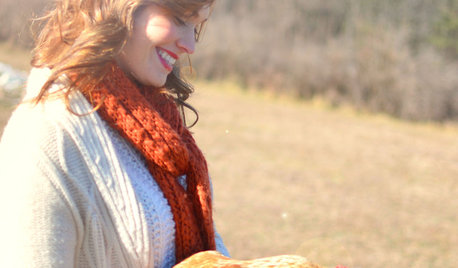
GARDENING AND LANDSCAPINGRaise Backyard Chickens Without Ruffling Neighbors' Feathers
Before you build a coop in the backyard, follow these strategies to help keep your neighbors from squawking
Full Story
GARDENING AND LANDSCAPINGBackyard Living: The Scoop on Chicken Coops
Perk up your morning with fresh eggs and chickadee clucks when you build a chicken coop in your own yard
Full Story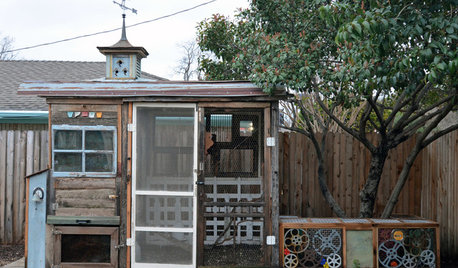
OUTBUILDINGSQuirky Meets Practical in a Dallas Chicken Coop
These hens have a stylish backyard coop built from recycled materials
Full Story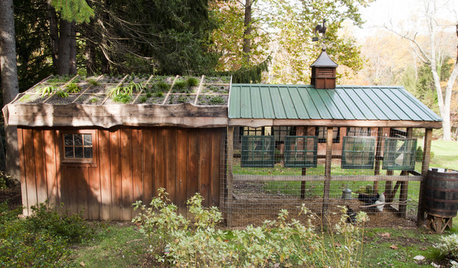
FARM YOUR YARDHouzz Call: Show Us Your One-of-a-Kind Chicken Coops
Do you have a fun or stylish backyard shelter for your feathered friends? Post your pictures and stories in the Comments!
Full Story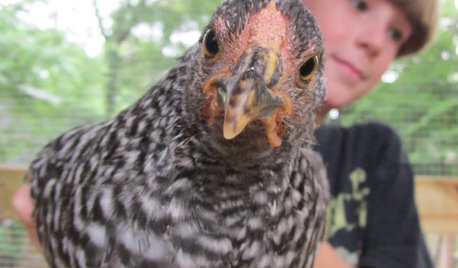
FARM YOUR YARD4 Farm-Fresh Chicken Coops in Urban Backyards
These Atlanta henhouses are worth crowing about for their charming, practical designs
Full Story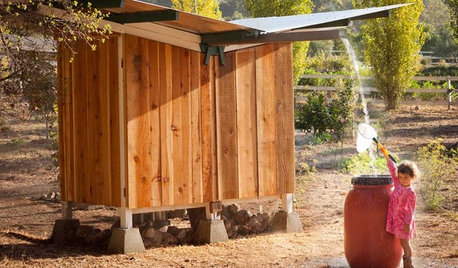
FARM YOUR YARDCollecting Rainwater and Eggs From a California Chicken Coop
See how a butterfly roof helps a hen home’s design soar into double-duty territory
Full Story
KITCHEN DESIGNSmart Investments in Kitchen Cabinetry — a Realtor's Advice
Get expert info on what cabinet features are worth the money, for both you and potential buyers of your home
Full Story
LIFEGet the Family to Pitch In: A Mom’s Advice on Chores
Foster teamwork and a sense of ownership about housekeeping to lighten your load and even boost togetherness
Full Story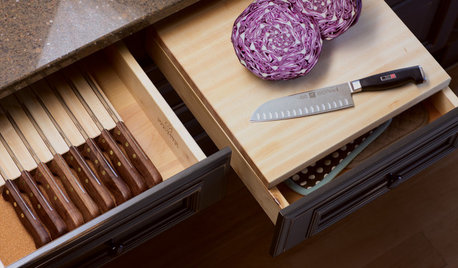
KITCHEN STORAGEKnife Shopping and Storage: Advice From a Kitchen Pro
Get your kitchen holiday ready by choosing the right knives and storing them safely and efficiently
Full Story


AmyinOwasso/zone 6b